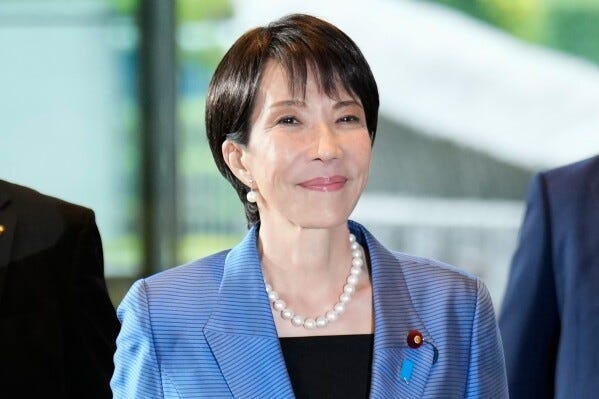Japan’s ‘First Female PM’
A Breakthrough, or a Gilded Cage?
The election of Sanae Takaichi as Japan’s first female Prime Minister is being hailed as a historic moment. But I can’t help but wonder: are we truly breaking barriers, or are we witnessing a nuanced performance that reaffirms the very structures it appears to challenge? Let’s explore the deeper implications.
A Moment of Jubilation, A Whisper of Doubt
The news hit with a flourish: Japan’s first female Prime Minister, Sanae Takaichi. On the surface, it feels like an undeniable victory, a cause for celebration in a country long struggling with gender parity in leadership. I imagine many felt a surge of hope, believing that a crucial glass ceiling had finally shattered. And in many ways, it has. The visual alone—a woman at the apex of Japanese political power—is potent. But almost immediately, a whisper of doubt started to creep in. Is this truly the seismic shift we hope for, or something more intricate, perhaps even paradoxical?
The Unspoken Bargain of Leadership
When someone ascends to power within a system as deeply entrenched and conservative as Japan’s Liberal Democratic Party, you have to ask: what did it cost? Did it require a fundamental alignment with the existing power structures, even if those structures historically marginalized women? To succeed in such an environment often means accepting its unspoken rules, embracing its ideologies, and perhaps even becoming a champion of its status quo. As Václav Havel once observed:
The truth is not simply what we say; it is also how we live.
– Václav Havel
This isn’t to diminish Takaichi’s achievement, but to question the nature of the path taken. Could it be that to ‘break through,’ one must first become indistinguishable from what was ‘inside’?
The Mirror of Progress: What Do We See?
This brings us to the core of the dilemma: what truly constitutes ‘progress’? Is it merely visible representation, a woman holding a title previously held by men? Or does it demand a deeper, systemic transformation of values, policies, and power dynamics? My instinct tells me that true progress isn’t just about who sits in the chair, but what values that person brings to the table and whether they challenge the very architecture of inequality. If the first female leader simply reinforces the conservative, often patriarchal, tenets that preceded her, then the mirror of progress might show us a reflection that is more comforting than it is truly transformative. It’s easy to mistake a symbolic gesture for a substantive revolution.
Beyond the Headline: Japan’s Enduring Threads
Japan’s cultural landscape is interwoven with threads of tradition and a long history of defined gender roles. For a woman to rise in this environment is remarkable, but it also prompts us to consider the pressures to conform. Simone Weil poignantly noted:
To be rooted is perhaps the most important and least recognized need of the human soul.
– Simone Weil
While this speaks to a universal human need, in a political context, it can translate into an immense pressure to maintain the ‘roots’ of the existing system, even for those who might appear to be outsiders. Takaichi’s conservative platform suggests a strong alignment with these deep-seated cultural and political roots, raising questions about how much she can, or even intends to, genuinely disrupt the established order for women across Japan.
Go Deeper
Step beyond the surface. Unlock The Third Citizen’s full library of deep guides and frameworks — now with 10% off the annual plan for new members.
Our Role in Unmasking the Deeper Truths
So, where does this leave us? I believe it leaves us with a responsibility to look beyond the headlines and the initial euphoria. It compels us to ask difficult questions about what real change looks like and whether a symbolic victory, however significant, can ever substitute for a genuine dismantling of systemic inequalities. We must be vigilant observers, ready to celebrate authentic progress but equally prepared to critique performative gestures. The journey towards true gender equality is complex, and sometimes, the most dangerous traps are those disguised as triumphs.



